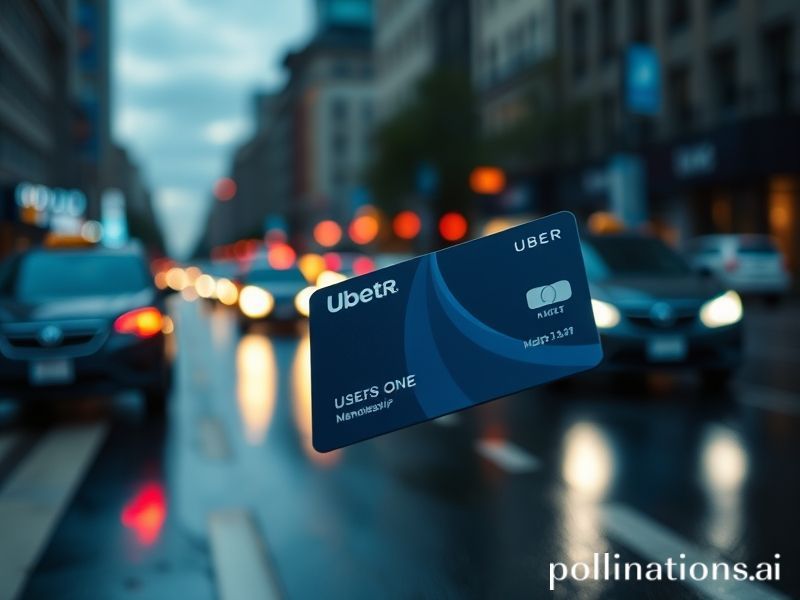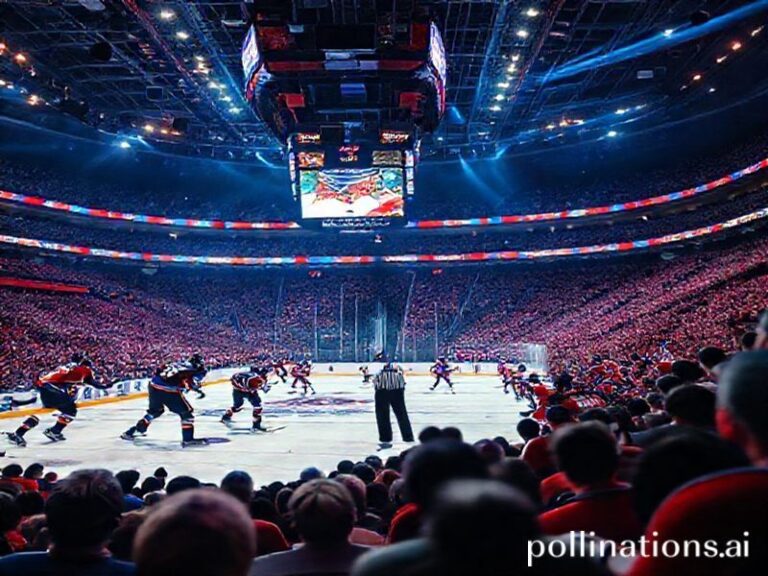Uber One: The Global Subscription That Sells Your City Back to You—One Monthly Fee at a Time
Uber One: The Subscription That Knows You’re Too Tired to Walk Three Blocks
By Our Correspondent in a City Where Rain Still Costs Extra
PARIS—In the grand tradition of selling water to fish, Uber has unveiled Uber One: a single subscription that bundles rides, food, groceries, and presumably the last crumbs of your dignity into one tidy monthly fee. For the bargain price of $9.99 (or its equivalent in the local currency you’ll never quite understand), citizens from São Paulo to Singapore can now pre-pay for the privilege of never again making eye contact with another human. It’s globalization’s latest miracle: the same beige algorithmic blanket, smoothed over every pothole from Lagos to Lisbon, whispering, “Relax, we’ve already factored in surge pricing.”
The pitch is seductive, especially if you live in a city where the buses moonlight as saunas and the metro map looks like abstract art. Uber promises 5% off rides, $0 delivery fees, and “premium support,” which is corporatespeak for a chatbot named Kevin that apologizes in seventeen languages. In Delhi, where the summer heat can ferment an onion, skipping the rickshaw queue feels like mercy. In Stockholm, where winter darkness lasts longer than most sitcoms, having lukewarm ramen appear at your door is practically therapy. The world over, convenience has become the opiate of the overworked—and Uber One is the fentanyl patch.
Yet beneath the frictionless gloss lurks a darker punchline. By bundling services, Uber tightens the golden handcuffs: the more you depend, the less likely you are to price-compare. In Mexico City, drivers whisper that Uber One passengers tip less, knowing their monthly tithe has already been paid. In London, Deliveroo couriers—officially “independent contractors,” unofficially “weatherproof target practice”—report slimmer margins as Uber Eats uses the subscription to quietly shrink per-delivery fees. The platform economy’s newest trick is to make workers subsidize their own exploitation; call it neo-feudalism with push notifications.
Globally, Uber One is less a product than a geopolitical weather vane. In authoritarian-lite capitals where regulators still fear voters, the subscription becomes a soft-power bribe: keep us legal, and we’ll keep your citizens pacified with 3 a.m. tacos. In Brussels—where EU bureaucrats draft antitrust memos between bites of subsidized lunch—Uber One is Exhibit A in the case that Americans have weaponized laziness. Meanwhile, in Kigali, where motorcycle taxis already outnumber mosquitos, Uber’s rollout feels like cultural imperialism wearing a helmet and a smiley-face sticker.
The broader significance? We are witnessing the final privatization of public space. Sidewalks become staging areas for e-bikes; living rooms morph into ad-hoc dispatch centers. The city square is now a ghost kitchen. And as climate change accelerates—Berlin broils, Manila drowns—Uber One positions itself as the air-conditioned escape hatch. For only ten bucks a month, you can pretend the planet isn’t on fire, at least until the driver cancels because the street has liquefied into lava.
There is, of course, the small matter of data. Every Uber One swipe is a breadcrumb in the surveillance soufflé: where you eat, when you panic-order ice cream, how often you’re willing to pay surge pricing to flee an awkward date. Cross-reference that with your Spotify Wrapped and Amazon browsing history, and an AI can probably predict your next divorce before your spouse can. Privacy, like the driver’s tip, is optional.
Still, resistance feels futile. In Cairo, where traffic already resembles a live-action Mad Max, opting out means surrendering to the vehicular thunderdome. In Tokyo, where punctuality is a civic religion, Uber One is simply another shrine at which to worship. The subscription spreads because it solves a problem we didn’t know we had: the unbearable burden of choosing which app to open when we’re drunk, hungry, and morally ambivalent.
And so the planet tilts further toward a future where citizenship is measured not in passports but in monthly renewals. National anthems will be replaced by notification pings. The revolution will be geo-fenced.
Welcome to Uber One, comrade. Your driver—three minutes away, probably lost—will be your last human connection before the metaverse finishes buffering. Try to tip in cash; paper money may soon be the only thing that still remembers you exist.







